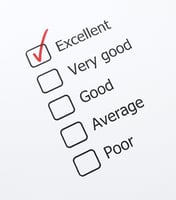Agency Evaluation Issues Many of our clients these days set specific performance objectives for the...
Steven Wales of Decideware presents a course at ANA School of Marketing
In March, Steven Wales of Decideware presented a course at the ANA School of Marketing “Agency Lifecycle Management – Developing win-win agency relationships that deliver effective marketing campaigns”.

The course guided attendees through the complex agency lifecycle management environment including roster management, agency compensation strategy, scope of work management and performance and relationship management.
Here are some of the key highlights from the class:
Agency Roster Approaches
There are several different agency roster approaches ranging from independent models where agencies are hired for specific projects with limited collaboration between agencies to fully integrated models where a holding company is responsible for producing all marketing assets. So how does an advertiser choose which model is best? It is important to understand that it is possible and often desirable to implement different roster strategies for each marketing category.
There are 2 key criteria to consider:
- How many brands do you need to support? – Are you a single brand single business unit company or do you have multiple brands and business units?
- Where are the key decisions based? – Do you have global leadership with local adaptation or origination or local leadership and origination?
There are pros and cons to each approach, so it is important that you weigh these closely before selection an approach that works for you. Considerations around company size, brand portfolio and geographical reach will impact the thinking around your choice of model.
Agency Relationship and Performance
It almost goes without saying that the key success factor to develop effective marketing programs is to partner with agencies that create great work. To achieve that commercial objective the partnership must be authentic and based on trust and transparency. A 2015 ANA study Enhancing Client/Agency Relations supports this goal; however, it revealed partnership issues exist between clients and agencies in categories such as briefing, approvals, transparency and personnel. So a key to building a successful relationship with agencies is to develop a sound agency evaluation program with the following characteristics:
- Ongoing – Consider holding ongoing evaluations, not just one per year. A mid-year pulse check can help ensure that your annual action planning is on track.
- Timely – Summarizing all the data in a timely manner at the close of an an evaluation closes can be challenging. Aim to complete this phase within 1-2 months so stakeholder debriefing can quickly take place and action planning can be developed and integrated.
- Robust – There are several evaluation models available, including one-way “client on agency” reviews to more complex 360 reviews style reviews (client on agency and agency on client with agency and client self-assessment). It is important to implement a model that is robust enough to gather the necessary information to answer and meet your program goals. Running at least a client on agency with agency self-assessment should help you achieve your goals.
- Relevant – Always evaluate your agency on topics that are relevant to your relationship. Don’t use generic evaluation templates, but ensure that your evaluations are specific to your program goals. Before you begin creating an agency management program, it is extremely important that you have a clear purpose as to why you are evaluating the agency and what you want the program to achieve
Agency Compensation Models
Agency compensation is one of the most important aspects of the client / agency relationship. Compensation models come in all shapes and sizes but can all be classified into 3 major categories –
- Inputs – Agencies are paid for resources/people work on the deliverables and client accounts.
- Outputs – Agencies are paid for the delivery of each deliverable.
- Outcomes – Agencies are paid for the results achieved or based on the value generated for their client.
As you move from input models to outcome models, risk and complexity increase. Understanding which model is best for your organization, based on your company size, management oversight capabilities and desired value is critically important.
Scope of Work Program
Once your compensation models are determined, it is important to operationalize the model with a solid scope of work program. A 2014 survey with the WFA and Decideware determined that over 60% of respondents do not have a standard company-wide method to execute their scope of work process. Furthermore, 68% do not have a centralized database or location where current and historical scope information is stored. It is important that for a sound program you include 3 key elements:
- Standardize – Standardize all elements of the actual scope including resources, hours, rates, deliverable, contracts.
- Centralize – Collect and store all scope details, detailed and structured for brands and agencies globally.
- Analyze – Analyze and visualize the data to locate opportunities for savings and efficiencies.
Whether you are a seasoned marketing procurement professional or new to marketing procurement, this course gives you both theory and practical advice to manage successful agency relationships. Please contact Steven Wales at 610-248-1592 or swales@decideware.com if you are interested in attending this course or bringing it in-house for your entire team.



